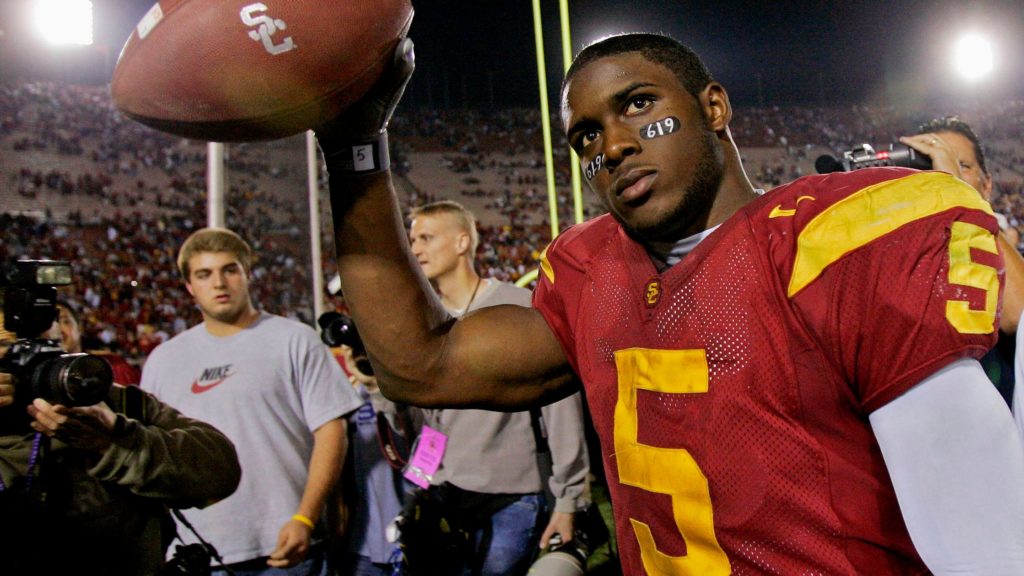
In 2010, Reggie Bush was forced to forfeit his 2005 Heisman Trophy. Did he cheat? No. Instead, he reportedly received more than $100,000 of money and gifts from agents who wished to sign him when he left college. This violated the NCAA’s long-standing rule that college athletes cannot get paid, resulting in Bush losing his Heisman Trophy and Bush’s school, USC, being stripped of its 2004 national championship and its other wins with Bush on the team.
The former NFL running back has been in the news lately. In a statement posted on Twitter, Bush called out “both the NCAA and The Heisman Trust in regard to the reinstatement of my college records and the return of my Heisman.” This was after the NCAA agreed to allow college athletes to make money.
This policy change was a long time coming and there was a lot of pressure on the NCAA to do this. The change came after a California law in 2019 allowing players to accept money, along with laws from other states and a unanimous Supreme Court ruling in June stating that the NCAA can’t bar modest payments to college athletes.
There are varying opinions on this rule change by the NCAA.
Some have been vocal in their opposition to this policy. They say that it diminishes the education of student-athletes. College athletes will treat college more as a minor league than as a place to get an education and get the other benefits one can find at college. Additionally, they claim that the free education they receive by being a college athlete is valuable enough. Not only do they have free room and board, but the bachelor’s degree one can earn from college can be worth around $1 million in earnings over their lifetime.
Finally, they say that athletes have to choose between the value of education and making money. Many leagues, such as the NBA, have developmental leagues. Athletes coming out of high school should choose to go to these leagues if they want to make money and go to college if they want an education.
But supporters of this change are by far the majority. Their strongest argument is the profit the NCAA makes off of these student-athletes. It is not fair that the NCAA gets hundreds of millions of dollars yearly off of the work of the athletes, while simultaneously banning the athletes from making money off their hard work.
This sentiment and other arguments in support of the policy change ultimately prevailed. College athletes can now earn money off of their name and image. Some athletes will look to earn millions of dollars every year.
Perhaps nobody at Fieldston has a greater understanding of the NCAA’s policies than Director of Athletics Gus Ornstein. Ornstein played college football before going on to play professionally for many years. Ornstein is fascinated by the rule change and is curious to see how it plays out. He expressed the new territory the NCAA is in, writing “I still do not have any sense how the NCAA will actually control and govern this new rule.” Ornstein continues, “Is this in fact in some ways the end of the NCAA as we know it!”
As Ornstein alludes to, the future of the NCAA is very much in question. Drastic changes to its business model will be coming soon. As Justice Kanavaugh wrote during the unanimous Supreme Court ruling against the NCAA, “Nowhere else in America can businesses get away with agreeing not to pay their workers a fair market rate on the theory that their product is defined by not paying their workers a fair market rate. And under ordinary principles of antitrust law, it is not evident why college sports should be any different. The N.C.A.A. is not above the law.”
Nobody knows how the world of college sports will change. However, the underlying message that college athletes will be the ones profiting off of their hard work is definitely a good thing. Ornstein proclaims, “We (college athletes) all found it unfair that everyone was making all this money but the actual athletes were not able to make any!”





